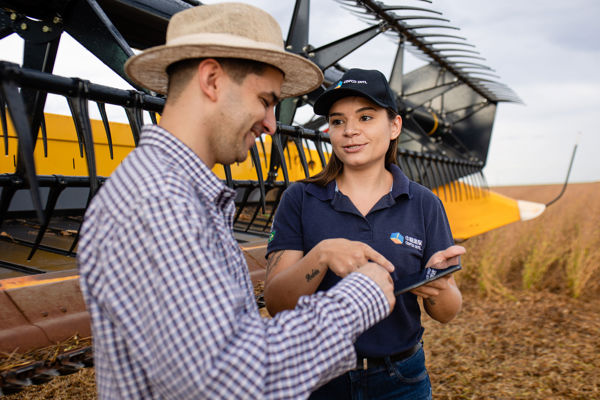
Reuters Commodities Trading 2021: Digitalisation creates significant opportunities across agricultural supply chain
Digitalisation in the agricultural commodities trade is now progressing rapidly and could create significant opportunities for companies across the supply chain, COFCO International Chief Technology Officer Andre Schneiter said at the Reuters Commodities Trading 2021 Summit.
Digitising financial and physical supply chains in the agricultural commodities trade
In a panel discussion entitled “Digitising financial and physical supply chains in the agricultural commodities trade,” Schneiter explained that there is major momentum towards greater use of digital technologies in agricultural trading. Even so, reliance on paperwork and manual processes remains.
“I see a lot of space for improvements. We still have a lot of papers moving back and forth, which means automation could make our industry significantly more efficient compared to today,” Schneiter said.
“The potential ahead is like what ERP systems did for companies 20 years ago by bringing them from silos to work together. What we are trying to do now is like that, but the scale is much bigger because rather than one company, we are bringing the big players in the industry together.”
Collaborate and integrate
Agricultural trade is becoming more digitised but still lags behind other sectors. Markets are fragmented, with different dynamics, and so it is not easy to bring all the players together with a common digital solution. But that also means the opportunities are significant.
“The potential to collaborate and work on a larger scale of integration will probably change the way we do business today. We can work in a different way with much more proximity between buyers and sellers, which would bring more efficiency to the process,” Schneiter said.
Advances in artificial intelligence will enhance pre-trade by clearly defining the quality of deals and removing some volatility from the market. Post-trade, it is a question of making the processes more efficient.
“I see the big opportunities after a trade has taken place, in the execution of the contract and everything that follows from there, such as finance, risk and management of forex positions. It would include not only the trading houses, but also every other party involved,” Schneiter said. “It will be a combination of technologies, like blockchain and, specifically, robotic process automation (RPA), which will streamline these processes and create a big opportunity.”
Covantis – an industry initiative
Over the next one to three years, the greatest efficiencies will come from digitalising whole processes, but the gains from this are limited compared with the potential of the technology. Further into the future, the issue will become the industry’s business models, which will need to mature in the same way as the technology.
“The technology will be available, but the challenge will be how we can collaborate and create new business models that are fully reliant on collaboration. And this is where competitors will probably become business partners,” Schneiter said.
This is already happening with Covantis, an industry-wide initiative to modernise global trade operations with COFCO International and other major industry players as partners.
“With the fragmentation of different providers with different processes, and different levels of efficiency in different regions, there’s a lot of potential to use solutions like Covantis, which we are doing successfully,” Schneiter said.
Independent and trusted platform
““The sector is still very reliant on paper and operating in the same way, with the same documents, as it did 200 years ago.””
– Petya Sechanova, CEO of Covantis
Covantis aims to connect the agri-industry via an independent and trusted digital platform to enable post-trade efficiency for all participants, by removing the need for paperwork and emails. By doing so, it offers a path to improve agricultural trade by using digitalisation to make it more effective and more efficient, unlocking significant value for all players across the supply chain.
“The agricultural space is probably the least automated sector of the commodity trading industry. We are now moving quickly with technology but the sector is still very reliant on paper and operating in the same way, with the same documents, as it did 200 years ago,” said Petya Sechanova, CEO of Covantis, speaking on the same Reuters Commodities Trading panel.
Sechanova cites the example of phytosanitary documents, which are still in paper form in 90% of cases, and explains that rapid digitalisation could bring talented young people to the industry.
“If you want to attract young talents, they’re not interested in checking papers for mistakes. They’re interested in looking for solutions through technology,” she added. “And that’s an issue for us as an industry, to attract talent.”

